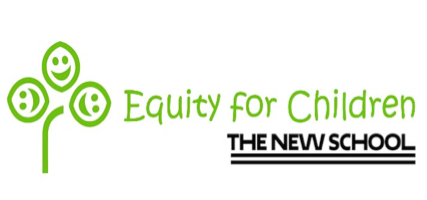report: CHILDREN living in poverty are high priority for international development communityNonprofit Equity for Children Brings Together Ideas From Researchers, Practioners and Policymakers to Combat Unfair Treatment of Children Worldwide |
NEW YORK (May 20, 2015) – For members of the international development community confronting inequity, children living in poverty must be the highest priority. This is one of the critical findings from a report released this week by Equity for Children, a nonprofit organization based at The New School in New York City. The study, “Approaches to Equity,” includes an analysis of institutional reports and interviews with leaders of international organizations as well as researchers and foundations, and contains recommendations for policymakers, practitioners and researchers. “The consensus is clear among members of the international development community: Children, more than any other group, are vulnerable to disadvantages and deprivations,” said Alberto Minujin, Executive Director of Equity of Children. “But there is hope: within the most excluded groups, respondents to the study noted, children reached in early childhood have the greatest potential to avoid long lasting deprivations and thereby end the cycle of poverty.” The report contains 10 key recommendations about practical approaches to combat unfair treatment of children worldwide:
In their approach to the study, researchers began with the premise that there is broad consensus among stakeholders about the need to achieve equity, but recognized differences in the interpretation and implications of equity and how to attain it. The group hopes to foster collaboration across sectors, among politicians, policymakers and practitioners, by establishing common definitions and interpretations. To read the report visit the Equity for Children website: http://www.equityforchildren.org |
|
Equity for Children seeks to build effective solutions that guarantee the well-being and the rights of children and teenagers. It translates academic knowledge into useful tools for those who work in the defense and promotion of children and teenage rights: students, professionals, government and not-for-profit organizations, political decision makers and media, among other target audiences. Equity for Children disseminates original research, designs training processes and develops spaces where multiple stakeholders can hold exchanges, such as virtual seminars and in-person meetings. Equity for Children is part of the Milano School of International Affairs, Management, and Urban Policy at The New School in New York, NY and in Latin America it is implemented as a component of the Social Studies in Childhood and Youth Program of the Universidad Nacional de 3 de Febrero (UNTREF, Argentina). For more information, visit equityforchildren.org. Founded in 1919, The New School was born out of principles of academic freedom, tolerance, and experimentation. Committed to social engagement, The New School today remains in the vanguard of innovation in higher education, with more than 10,000 undergraduate and graduate students challenging the status quo in design and the social sciences, liberal arts, management, the arts, and media. The New School welcomes thousands of adult learners annually for continuing education courses and calendar of lectures, screenings, readings, and concerts. Through its online learning portals, research institutes, and international partnerships, The New School maintains a global presence. Learn more at www.newschool.edu. |
 |
MARKETING AND COMMUNICATION |
| 79 Fifth Avenue New York, NY 10003 www.newschool.edu |
PRESS RELEASE |
Media Contacts: Beatrice Mauger, |
|
|
